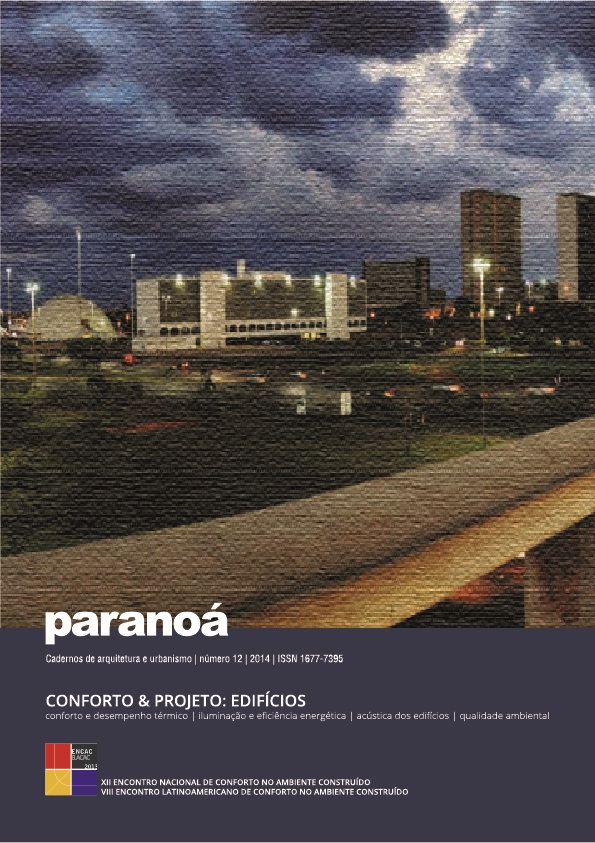Usos finais de eletricidade e rotinas de uso como base para estratégias de eficiência energética por meio de auditoria residencial
DOI:
https://doi.org/10.18830/issn.1679-0944.n12.2014.12297Keywords:
Energy audits, Electricity end-uses, Low-income housesAbstract
The paper aims to present the electricity end-uses and schedules for occupancy and equipment usagefor low-income houses. Data were obtained through energy audit on a sample of 60 low-income houses in the region of Florianópolis-SC, by means of questionnaires and measurements of electricity consumption. The data obtained from the questionnaires refer to the socioeconomic status of the householders and the schedules of equipment and lighting usage, estimated for summer and winter periods. The measurements were used to characterize the equipment and lamps, determining the electricity consumption and usage time, for a period longer than two weeks in each house. The data were assessed through confidence intervals, with parametric and nonparametric statistics. The results showed that the electric shower represents the largest end-use of the sample, with a median of 36.8%, followed by refrigerators, television and lighting. The data showed no significant differences between summer and winter periods, due to the small sample size and the variability of the data. The usage schedules found, when related with respective average power density,correspond to input variables for building simulation studies on the thermal performance of these houses, and contribute to characterize this type of building. The correct quantification of electricity end-uses from small samples leads to the adoption of specific measuresfor energy efficiency in these houses.
Downloads
Downloads
Published
How to Cite
Issue
Section
License
Autores que publicam nesta revista concordam com os seguintes termos:
- Autores mantém os direitos autorais e concedem à revista o direito de primeira publicação, com o trabalho simultaneamente licenciado sob a Licença Creative Commons Attribution que permite o compartilhamento do trabalho com reconhecimento da autoria e publicação inicial nesta revista. http://creativecommons.org/licenses/by/4.0
- Autores têm autorização para assumir contratos adicionais separadamente, para distribuição não-exclusiva da versão do trabalho publicada nesta revista (ex.: publicar em repositório institucional ou como capítulo de livro), com reconhecimento de autoria e publicação inicial nesta revista.
- Autores têm permissão e são estimulados a publicar e distribuir seu trabalho online (ex.: em repositórios institucionais ou na sua página pessoal) a qualquer ponto antes ou durante o processo editorial, já que isso pode gerar alterações produtivas, bem como aumentar o impacto e a citação do trabalho publicado (Veja O Efeito do Acesso Livre).















